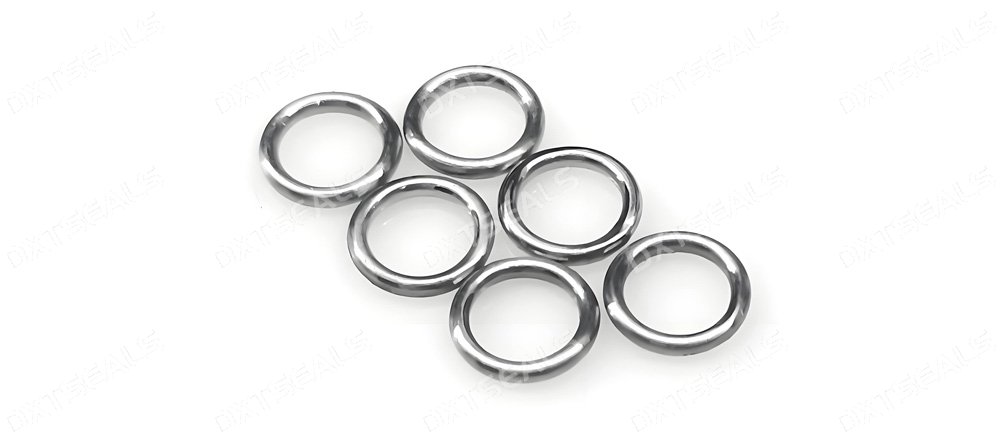Introduction
In industrial and manufacturing environments, efficient sealing is crucial to ensure the smooth operation of equipment, prevent leaks, and maintain the integrity of systems. Metal seals are widely recognized for their durability, resistance to extreme conditions, and ability to handle aggressive environments. These seals are often used in demanding applications, including aerospace, automotive, chemical processing, and oil & gas industries.
In this article, we will explore the key benefits of using metal seals in industrial and manufacturing processes, as well as the factors that make them ideal for high-pressure, high-temperature, and chemically challenging environments.
1. Superior Durability and Longevity
One of the primary advantages of metal seals is their exceptional durability. Unlike traditional rubber or elastomeric seals, metal seals can withstand extreme temperatures and pressures without losing their sealing ability. This makes them ideal for high-performance applications where long-term reliability is essential.
Metal seals are particularly suited for high-temperature environments (up to 1000°C and beyond) and can function effectively under high-pressure conditions. Their ability to maintain structural integrity over time helps reduce maintenance costs, enhance system performance, and minimize the risk of failures.
2. Resistance to Extreme Conditions
Industrial and manufacturing systems often operate in harsh environments, such as high pressures, extreme temperatures, and aggressive chemicals. Metal seals are engineered to withstand these tough conditions, providing a reliable sealing solution even when traditional elastomeric materials fail.
Key Benefits of Metal Seals in Harsh Conditions:
- High-temperature resistance: Metal seals can handle temperatures from -200°C to over 1000°C, depending on the material used.
- Chemical resistance: They are resistant to a wide range of chemicals, solvents, and corrosive substances.
- Pressure tolerance: Metal seals are ideal for high-pressure applications, including hydraulic systems, steam boilers, and pressure vessels.
3. Versatility in Material Selection
Metal seals come in a variety of materials, each offering unique advantages depending on the application. Some of the most commonly used metals for seals include:
- Stainless steel: Known for its corrosion resistance, strength, and ability to handle high temperatures.
- Inconel: A nickel-based alloy that performs well in extremely high-temperature environments and offers excellent resistance to oxidation and corrosion.
- Copper: Known for its thermal conductivity and flexibility, making it ideal for applications involving heat exchangers.
- Monel: A nickel-copper alloy used in industries where high corrosion resistance and strength are required.
By selecting the appropriate material, metal seals can be optimized for specific operating conditions and environments, ensuring superior performance and longevity.
4. High-Performance Sealing in High-Pressure Applications
In many industrial processes, high-pressure sealing is required to ensure the safe and efficient operation of systems. Metal seals excel in high-pressure environments where elastomeric seals might fail due to material deformation or leakage.
For instance, metal face seals are often used in compressors, valves, and rotary shafts, where they form a tight seal under high-pressure conditions. They can resist internal and external pressure fluctuations without compromising their sealing capabilities.
5. Reduced Maintenance Costs
The long-lasting durability of metal seals results in reduced maintenance and replacement costs. Since they are resistant to wear and degradation, metal seals need less frequent replacement compared to traditional rubber or elastomeric seals. This can lead to significant cost savings in industrial operations, especially in large-scale manufacturing processes where equipment downtime can be costly.
Moreover, metal seals provide consistent performance over time, reducing the need for troubleshooting and enhancing the overall reliability of systems.
6. Enhanced Leak Prevention
Leakage can result in serious problems in industrial and manufacturing environments, such as contamination, loss of product, and system failure. Metal seals create a strong, durable seal that significantly reduces the risk of leakage, even in extreme conditions. This is particularly important in applications where the leakage of fluids, gases, or chemicals could lead to dangerous situations or expensive product loss.
The tight seal provided by metal seals ensures that hazardous substances are contained, improving both safety and efficiency.
7. Low Compression Set and Deformation
Unlike rubber seals, which can suffer from compression set and lose their sealing ability over time, metal seals are less prone to deformation. Metal seals maintain their shape and sealing performance even after prolonged exposure to compression, heat, and pressure. This ability to resist deformation makes them ideal for systems that require constant pressure or temperature fluctuations.
Applications of Metal Seals in Industrial and Manufacturing Processes
Metal seals are used in a wide range of applications across industries due to their strength and performance. Some common applications include:
- Aerospace: Ensuring airtight and pressure-resistant seals in aircraft engines and fuel systems.
- Automotive: Providing durable seals for engines, fuel systems, and transmission components.
- Oil & Gas: Sealing components in drilling equipment, pipelines, and pressure vessels.
- Chemical Processing: Protecting equipment from leaks in systems that handle corrosive substances.
- Power Generation: Sealing turbines, valves, and pressure vessels in power plants.
Conclusion
In conclusion, metal seals offer numerous benefits that make them a preferred choice in industrial and manufacturing processes. Their durability, resistance to extreme conditions, and long-term performance make them an ideal solution for high-pressure, high-temperature, and chemically aggressive environments. With a wide range of materials available, metal seals can be tailored to meet the specific needs of any application.
By incorporating metal seals into your sealing solutions, you can enhance system performance, reduce maintenance costs, and ensure leak prevention, ultimately leading to increased efficiency and reliability in your industrial operations.

